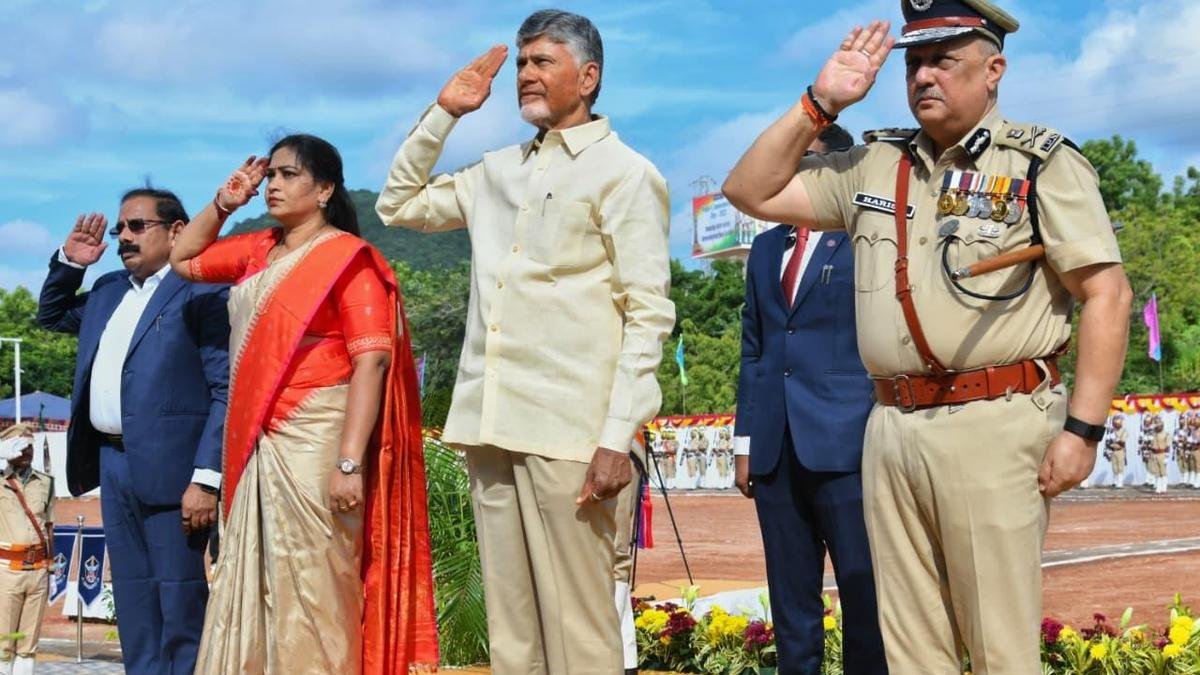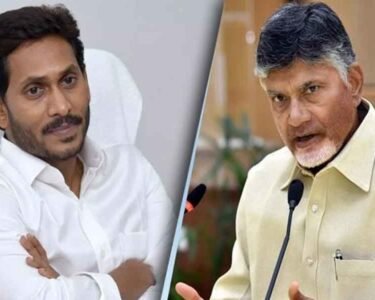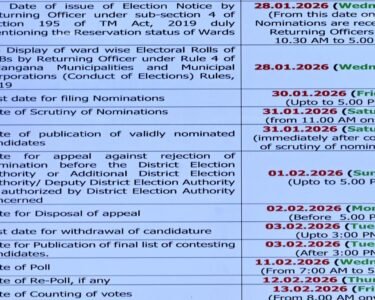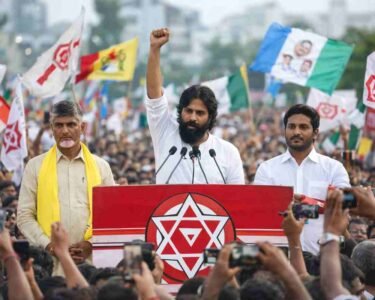In a recent address, Andhra Pradesh Director General of Police (DGP) Harish Kumar Gupta emphasized that policing is not merely a profession but a sacred calling. His words resonated deeply across the ranks of the police force and among citizens who value discipline, dedication, and service to the nation. The DGP reminded everyone that the true essence of policing lies in service before self, an ideal that transcends routine duties and demands a lifelong commitment to justice, humanity, and moral integrity.
The Spirit of Service Above Self
According to DGP Harish Kumar Gupta, the police uniform symbolizes trust, responsibility, and sacrifice. Every police officer, from the constable to the top ranks, holds the public’s faith in their hands. He emphasized that the spirit of policing must be rooted in compassion, fairness, and dedication to protecting the weak. The DGP said that when an officer views their duty as sacred, they serve not for recognition or reward, but for the higher cause of peace and justice.
Policing, he remarked, is not a job that ends with a shift — it’s a continuous commitment to upholding law and order. Officers must remember that their actions directly affect public confidence in the system. Upholding integrity, therefore, becomes the most crucial element of their work.
The Moral Foundation of Policing
DGP Gupta elaborated that moral character is the foundation of effective policing. A police officer’s decisions can save or destroy lives, influence communities, and shape the image of governance itself. Hence, moral discipline and ethical standards should always guide every action.
He urged young recruits to view their roles not as an authority over citizens, but as guardians of justice and protectors of rights. The DGP stressed that when moral responsibility aligns with professional duty, the force transforms into an institution of hope rather than fear.
Building Trust Between Police and Public
In his address, the DGP highlighted that public trust is the true measure of police success. No matter how advanced technology or infrastructure becomes, the effectiveness of law enforcement still depends on the trust people have in the system. Gupta emphasized that transparency, empathy, and accessibility are the keys to strengthening this trust.
He called upon officers to engage more deeply with communities, listen to citizens’ concerns, and respond with sensitivity. The DGP noted that community policing initiatives—like awareness programs, youth outreach, and local partnerships—help in bridging the gap between police and public, creating a more harmonious and secure society.
Challenges in Modern Policing
While acknowledging the noble nature of policing, DGP Harish Kumar Gupta also addressed the real-world challenges faced by the police force. He mentioned the stress, long working hours, and emotional toll that come with the responsibility of maintaining law and order. Despite these hardships, he said, an officer must remain calm, fair, and just.
The DGP also pointed out the increasing complexity of crimes in the digital age—cybercrimes, financial frauds, and organized criminal networks. He stated that the sacred calling of the police now demands not just bravery and integrity but also intellectual sharpness and technological adaptability. Officers must continuously update their skills to meet the evolving threats of modern society.
Police as Pillars of Democracy
Gupta reminded his audience that the police are not just enforcers of the law but protectors of democracy. In a democratic system, the police ensure that every citizen enjoys safety, equality, and freedom within the rule of law. When officers perform their duties with impartiality and compassion, they uphold the democratic ideals envisioned by the Constitution.
He emphasized that misuse of power, corruption, or discrimination erodes the credibility of the institution. Therefore, each officer must act as a custodian of justice, respecting the dignity of every individual regardless of their background.
Encouraging Ethical Leadership and Training
The DGP also spoke about the need for ethical leadership within the force. Senior officers, he said, must lead by example — displaying humility, courage, and fairness. Leadership in the police force should inspire confidence among subordinates and reinforce moral values rather than fear.
Gupta also underlined the importance of training and mental wellness. Regular sensitization programs, stress management workshops, and ethical training can help officers cope with job pressures while maintaining emotional balance and professionalism.
Conclusion: A Sacred Duty to Protect and Serve
Concluding his message, DGP Harish Kumar Gupta reiterated that the police service is not just a profession but a sacred duty to society. Each officer, by wearing the uniform, pledges to protect lives, uphold justice, and stand as a symbol of moral strength.
He reminded officers that their actions define not only their personal integrity but also the reputation of the entire force. When police officers act with honesty, empathy, and dedication, they truly embody the sacred calling of their service — one that commands respect and brings peace to every corner of society.
Final Reflection
DGP Gupta’s statement serves as an important reminder that police work goes beyond enforcement—it is a moral mission. In times when society faces numerous challenges, from crime to social unrest, the dedication and righteousness of the police force remain the cornerstone of public safety. Viewing the service as sacred transforms policing from a mere duty into a noble pursuit of justice and humanity.







